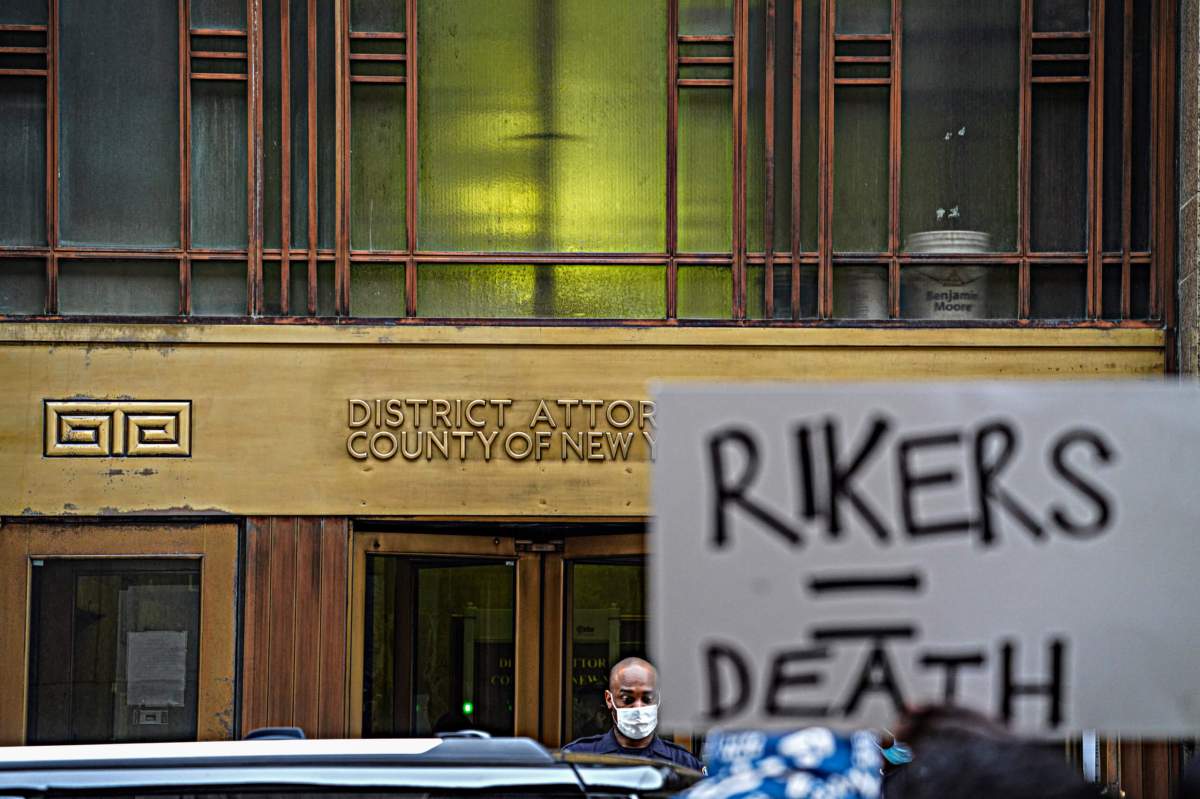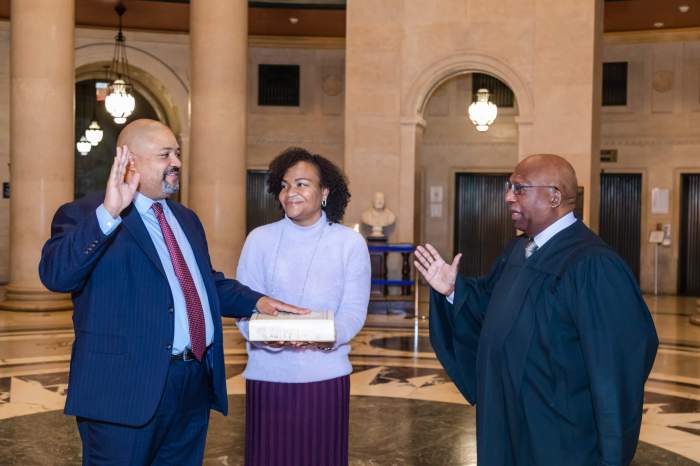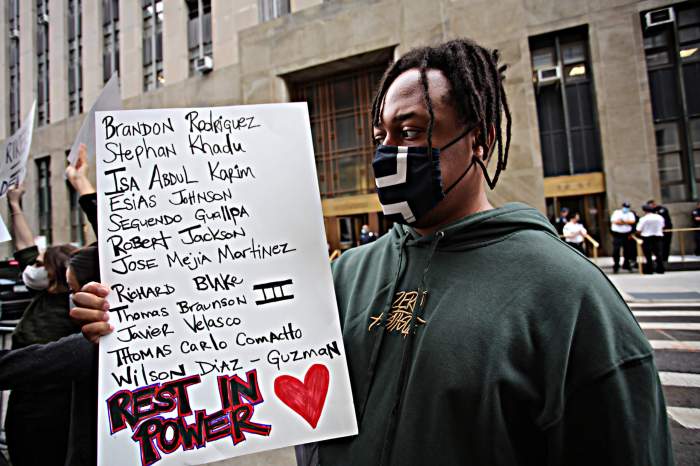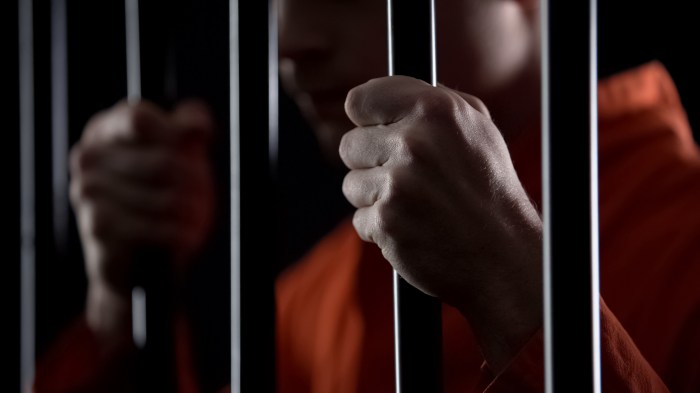Manhattan District Attorney Alvin Bragg spent his first few days in office backing incarcerated individuals’ rights and drawing controversy in the process.
First, joining families of the elderly incarcerated on Tuesday to call for the parole of seniors spending their twilight years behind bars, Bragg said it is time for long-term prisoners who show rehabilitation to be released.
One day before Governor Kathy Hochul delivered her State of the State address in Albany, Bragg joined with lawmakers to demand the passage of the Elder Parole and Fair & Timely Parole bills, which would expand parole eligibility for those 55 and older who’ve already been behind bars for at least 15 years.
“I am proud to stand with advocates in support of these bills. These are not only common-sense bills but they are also driven by data and sound public policy. This is important to the County of Manhattan and to me, personally. And this is a racial justice issue when we look at who is incarcerated and the Parole Board outcomes,” Brag said via a virtual meeting on Jan 4.
Speaking alongside the Release Aging People in Prison Campaign (RAPP), which consists of family members striving to secure the release of elderly loved ones, the group has been extremely vocal regarding the state of the prison system during the COVID-19 pandemic and the rate at which those inside are contracting the deadly virus. They say this particularly harms older adults since they argue that the impact of serving time greatly ages the body.
It is with this in mind the bills also look to change the way parole is handled, evaluating eligibility based on recent behavior while serving time. In addition, advocates say that this is not a get out of jail free card, but simply an opportunity to present older adult cases to the parole board for review. It is an evaluation of the individual holistically and humanely, and has been, as Bragg says, an issue that pre-dates COVID-19. He believes elder parole and fair and timely parole are necessary to correct racial injustices since statically this affects Black and Brown communities exponentially.
As Bragg spent time advocating for those behind bars, a memo released to his staff a day earlier revealed that he will also be opting not to pursue the prosecution of a certain criteria of crimes. The memo stated that acts such as fare evasion, marijuana and even prostitution will not be prosecuted going forward.
This resulted in a scathing rebuke from Detectives Endowment Association, a police union that represents active and retired detectives.
“Where there are drugs, there are guns. They go together,” said Detectives’ Endowment Association (DEA) President Paul DiGiacomo, “D.A. Bragg has made himself the police, the judge and the jury.”
DiGiacomo went on to pull very few punches when it comes to the impact on crime this new approach will have throughout the city.
“Why doesn’t Bragg just give the drug dealers business cards telling everyone they’re open for business, what their hours are, and what they charge? Bragg gives criminals the road map to freedom from prosecution and control of our streets,” DiGiacomo said.




































